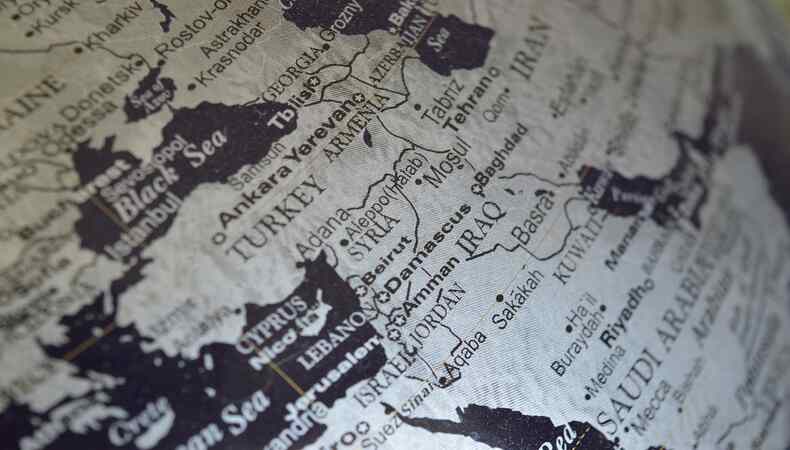The Evolving Landscape of Middle East Alliances and Global Stability

Long a pillar of world politics, the Middle East’s great oil deposits and strategic location help to explain why. The changing alliances of the area over the years have had far-reaching effects on world stability, impacting everything from world economics and international security. The complexity resulting from the dissolution of existing alliances and the emergence of new ones makes the future of world stability ever more dubious.
Historically, the Middle East has been a battlefield for dominance; Saudi Arabia, Iran, and Iraq often at the epicenter of regional dynamics. Driven by both political and financial goals, these countries have competed for dominance all throughout the area. Rooted in sectarian divides (Sunni against Shia Islam) and conflicting ideas for regional supremacy, the competition between Saudi Arabia and Iran has been a fundamental axis of this power struggle. Throughout the Middle East, this rivalry has been a main driver of proxy conflicts; most famously in Yemen and Syria, where both countries support competing groups engaged in continuous civil war.
Why Oil Politics Matters
Global dominance of the Middle East depends critically on oil politics. Having a large share of the world’s oil reserves, the area is therefore a major participant in the international energy scene. Driven mostly by Middle Eastern governments, the Organization of the Petroleum Exporting Countries (OPEC) is vital in controlling oil prices by varying production levels. Driven by both market factors and geopolitical concerns, fluctuations in these prices have a significant impact on the global economy and affect everything from inflation to the cost of goods and services all around.
Rising Alliances and Realignment
New alliances have started to change the political scene of the Middle East in recent years, therefore complicating the area’s function in world stability. A major change in regional dynamics came with the Abraham Accords, which saw Israel’s relations with numerous Arab governments normalized. These agreements, achieved with significant U.S. support, have the ability to change the balance of power by building a coalition opposing Iranian dominance. The normalizing of ties between Israel and nations like the United Arab Emirates (UAE) and Bahrain points to a strategic realignment emphasizing economic cooperation and security alliance.
On the other hand, the usually close relationship between the United States and important friends like Saudi Arabia has strained things. Divergent opinions on human rights concerns and different strategies for handling regional conflicts have driven Saudi Arabia to look for fresh alliances, mostly with China and Russia. Driven by shared economic and strategic interests, these developing ties could change the global power distribution. The dynamics of world politics are probably going to get much more complicated as China and Russia increase their influence in the Middle East.
The Alliance between Iran-China-Russia
Iran, under Western sanctions and constant competition with Saudi Arabia, has turned more and more to non-Western nations like China and Russia for military and financial support. With major consequences for world stability, the trilateral cooperation among Iran, China, and Russia offers a great counterbalance to U.S. power in the area. This alliance not only questions Western supremacy but also helps a more multipolar world to develop whereby several blocs fight for control over world resources and influence.
The Yemen Conflict: Microcosm
The continuous conflict in Yemen perfectly embodies the larger Middle Eastern geopolitical challenges. Driven by Saudi-Iranian rivalry, the war has attracted a variety of regional and international players, further aggravating tensions and fueling a major humanitarian disaster. The engagement of outside forces in Yemen emphasizes how Middle Eastern conflicts can have far-reaching effects that destabilize not only the area but maybe cause global unrest. The humanitarian catastrophe in Yemen further emphasizes the terrible human cost of these geopolitical power exercises.
Energy Shifts and Economic Diversity
Middle Eastern oil’s geopolitical relevance is likely to fade as the globe turns toward renewable energy in response to climate change. For Middle Eastern countries, who have historically depended on oil income to maintain their economies, this shift presents major difficulties. These nations are being compelled to diversify their economies and create fresh partnerships if they are to ensure their futures. Although it is essential for environmental sustainability, the global energy transition is probably going to change the political and economic scene of the area in odd directions.
Global Trends and Future Implications
Middle Eastern changing power relations are intricately linked with more general world patterns. The alliances of the area are greatly shaped by China’s global superpower status, Russia’s comeback, and the relative drop of Western dominance. Depending on how regional and international players handle these worldwide changes, they could either stabilize or aggravate the Middle East.
Still a major player in world affairs, the Middle East is where alliances and oil politics still profoundly affect world stability. The region’s impact on the world is changing in ways that are both complicated and erratic as new alliances develop and old ones fade. The way these changing powers are negotiated by regional and worldwide players will determine the course of world stability. Anticipating the opportunities and challenges that lie ahead in an ever linked globe depends on an awareness of the complex dynamics of Middle East alliances and oil politics.




